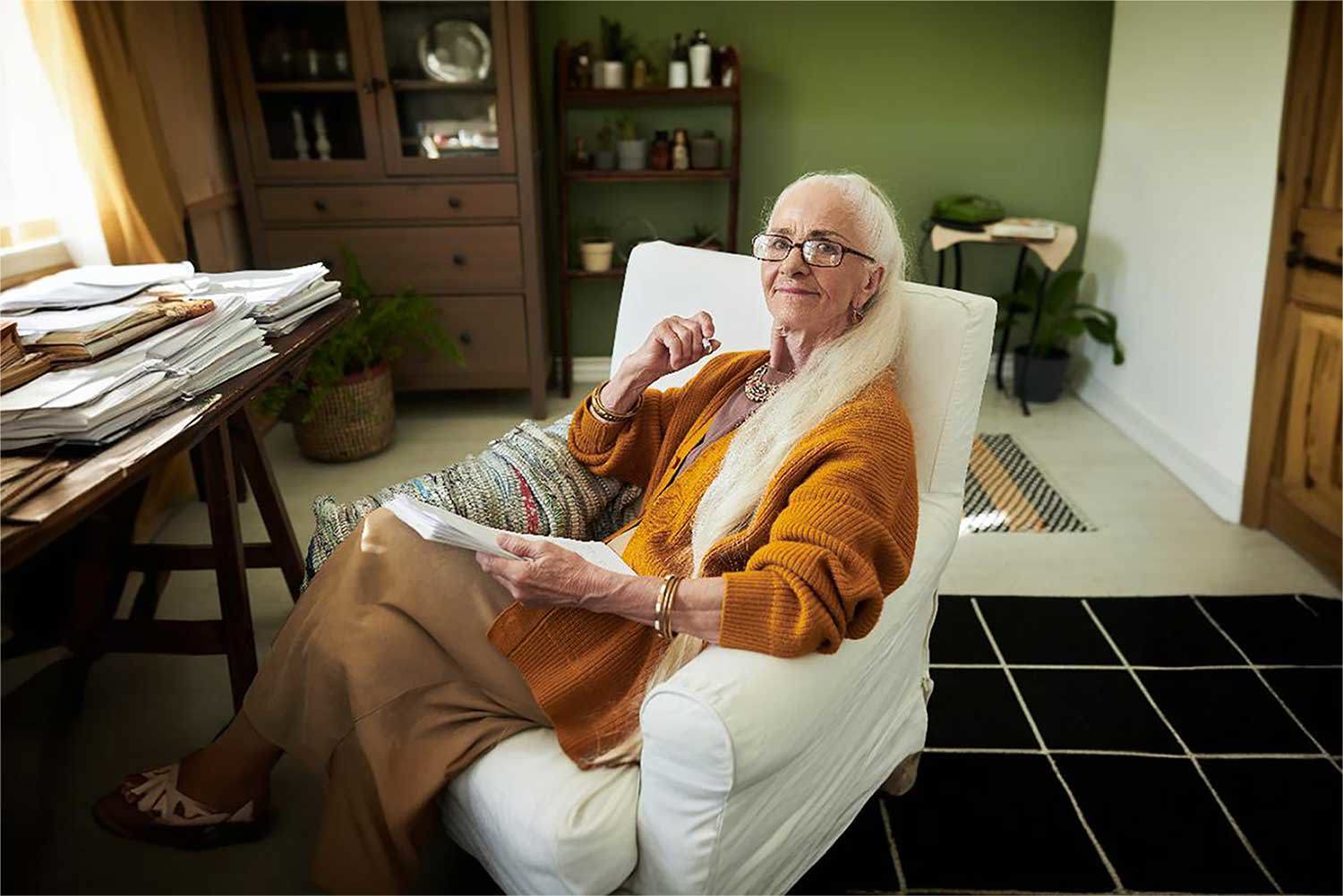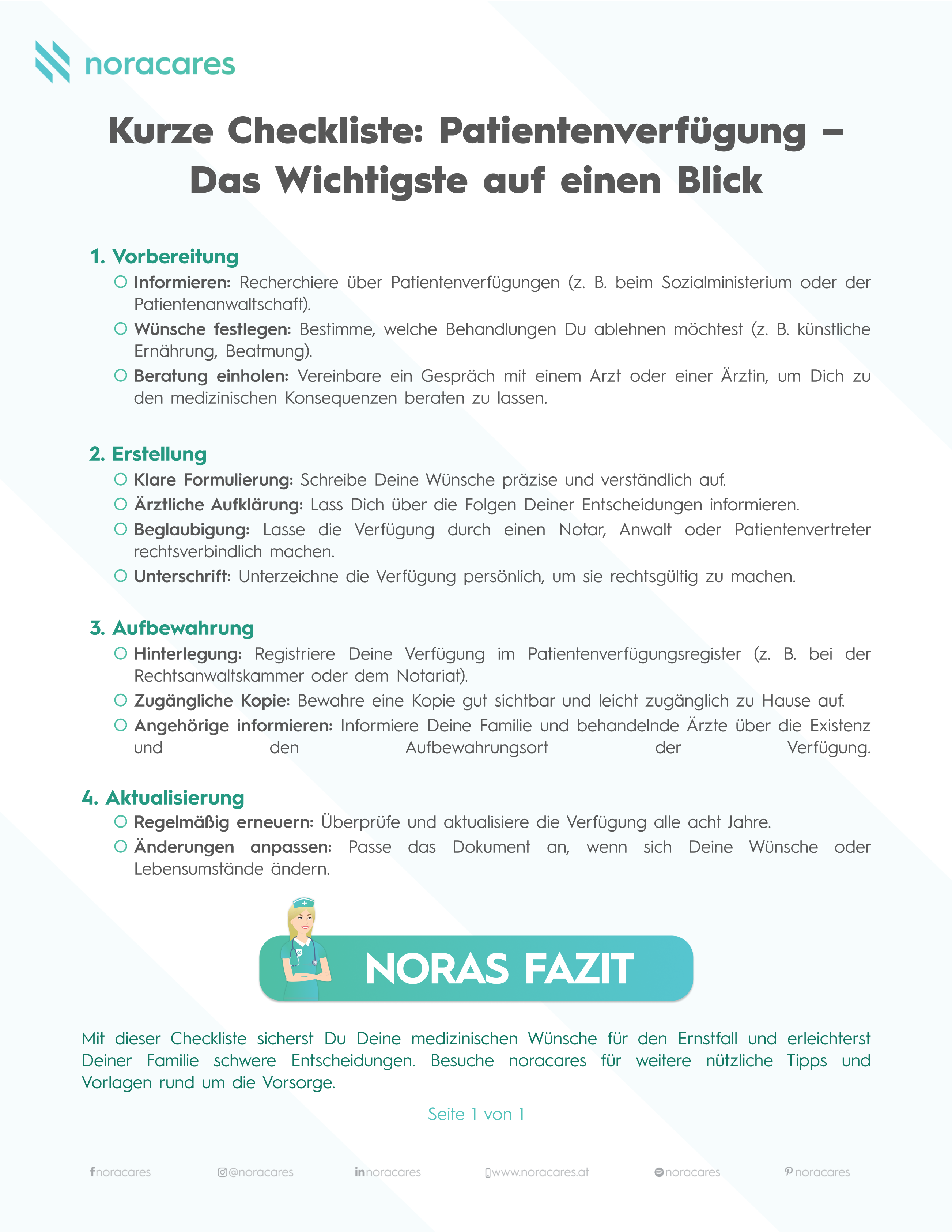Living will: Your plan for clarity and security
What happens when you can no longer express your medical wishes?
Would your family know what decisions you want? Would doctors know your ideas?
Imagine Anna sitting at her father's bedside. The monotonous beeping of the monitors fills the room as she struggles with the burden of an impossible decision. Her father can no longer speak for himself and no one knows what he would have wanted. Her sister believes that life support should be ended; Anna hopes for a miracle.
With a living will, her father could have clearly recorded his wishes and spared Anna and her sister this burdensome responsibility.
A living will ensures that your medical wishes are respected. At the same time, you relieve your loved ones at an emotionally difficult time. In this guide, we explain why a living will is so important, how to draw one up in Austria and how it can help you and your family.
What is a living will and why is it important?

A living will is a document in which you specify which medical treatments you refuse or want in an emergency if you can no longer make your own decisions.
Why is it so important?
- Self-determination: With a living will, you retain control over your medical care.
- Relief for your family: You relieve your loved ones of the difficult task of having to make decisions without clear guidance.
- Legal protection: A binding living will obliges doctors to implement your wishes.
Types of living wills
- Binding living will: Doctors are legally obliged to follow your specified wishes if the formal requirements are met.
- Considered Living Will: This serves as a guide, but is not legally binding.
Anna's story
Anna's father never spoke about his wishes because he assumed that his family "would already know what to do". Without clear instructions, Anna and her sister found themselves in a painful conflict. A living will would not only have clearly defined his wishes, but also avoided the dispute and uncertainty.
How do you create a living will in Austria?
1. Medical advice
Talk to your doctor to understand the possible medical measures and their consequences. This conversation is an important basis for your decisions.
2. Formulate wishes clearly
Use specific wording to avoid misunderstandings, e.g. For example:
- "I refuse artificial respiration if there is no chance of recovery."
- "I wish for strong painkillers, even if they could shorten my life."
Templates can be found at the Ministry of Social Affairs or the Patient Advocate (BMASK, 2024).
3. Legal notarization
A notarization by a notary, lawyer or legal patient representative is required for a binding living will. This makes your directive legally binding.
4. Safe storage
Register your living will in the living will register. This way, hospitals can access it in an emergency. Keep a copy at home and inform your family where it is kept.
5. Regular updating
Since 2019, living wills in Austria are valid for eight years. After that, you must renew it in order to maintain its legal validity.
Important points about the living will
What treatments can you manage?
- Withdrawal of life-sustaining measures (e.g. artificial respiration or nutrition).
- Consent to painkillers, even if they could shorten life.
- Instructions for resuscitation (e.g. "Do not resuscitate").
Who can create a living will?
Anyone who is capable of making decisions and understands the consequences can draw up a living will. In practice, this is assumed to be the case from the age of 14.
What happens if you don't have a living will?
Without a living will, doctors will make decisions in consultation with your family. This often leads to arguments or decisions that do not correspond to your wishes.
Common mistakes in living wills
1. Unclear language
Avoid vague phrases like "no life-prolonging measures". Be as specific as possible.
2. Forgotten update
Keep your order up to date. Medical advances or changes in your health may require new decisions.
3. Document difficult to access
Make sure that your order is easy to find in an emergency. Inform your family and register the document.
Costs of a living will in Austria
The costs vary depending on the effort:
- Medical advice: 50-200 €
- Notarization: 150-300 €
- Patient Representation: Often free of charge
Many patient advocacy groups offer free support. Find out about the best options in your region.
FAQ: Your questions about living wills
A living will gives you the opportunity to make your medical wishes clear and binding. It protects you and relieves your family at a difficult time.
Start today: talk to your doctor, use templates and make sure your wishes are respected. noracares will support you every step of the way, so you can be sure that your future is in good hands.
With noracares you will find all the information and support you need to create your living will safely and easily. Get started now!
- Patient decree: Document setting out medical wishes in the event that you are no longer able to make decisions.
- Binding injunction: Legally binding if all requirements are met.
- Notable disposition: Not binding, but serves as a guide.
- Patient Advice Register: National registry giving hospitals access to living wills.
- Notarization: Legal confirmation that legally secures a document.







